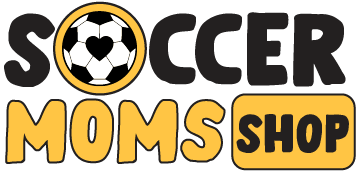Parents play a particularly important role in their child’s sporting experience. Attitudes and behaviors of parents can impact both positively and negatively upon the child’s involvement in sports, their motivation for sports, self-esteem and their mental health. Being a good sports parent entails many different facets. It could mean simply attending the child’s sporting event or playing a game of catch with them in the backyard. To complicate matters further, being a good sports parent will also depend upon the child, their development, the parent and the context. Due to this, effective sports parenting will change over time as the child grows.
Parents are their children’s first role models. This is important to consider with regard to being a good sports parent. Children will look to their parents to help them define their sporting experience. Parents also impact the way a child will interpret their sports experience. To help your child have a positive sporting experience, parents can set expectations from the start of their season. Expectations should be set for good effort, improvement in the child’s skills, healthy physical activity and cooperation with coaches, opponents, teammates and officials. Once the sporting season begins, a good sports parent attends as many games as possible, provides transportation as needed to practices and games, cheers for their child’s team and volunteers when available.
Here is a simple list of conduct rules that will positively impact your child and their sporting experience:
- Do not advise the coach on how to coach
- Do not make derogatory comments to anyone
- Do not coach your child from the spectator area
- Do not drink alcohol at children’s sporting events
- Do not pressure your child to play
- Do not allow your child to play injured
- Do understand what your child wants from the sport and support this
- Do help your child understand the important and valuable lessons sports can provide
- Do remain in the spectator area
- Do cheer for your child’s team
- Do show interest and enthusiasm
- Do control your emotions
- Do help the coach if he/she asks or officials ask
- Do thank coaches, officials, volunteers, etc.
- Do set limits on your child’s participation in sports
- Do help your child set realistic sports performance goals
Professionalization of youth sports has become a much talked about topic recently due to the large dropout rate of kids who have played sports. Researchers from the Association for Applied Sport Psychology states that children join sports for the fun of it and to be with their friends. Research also shows that they quit sports when the sport has become too serious and the fun has been taken away from it. This is unfortunate because there are so many important life lessons that children can learn from playing a sport. The likelihood of these children to continue to play sports throughout their life decreases drastically after this point. Professionalization of youth sports takes the fun away from the sport for the kids and it is also based upon myth and not science. One is unable to detect athletic ability at a young age, therefore, creating elite teams is really only leaving out kids that may not have developed yet. Taking the lead from the child can be very helpful with regard to how competitive they are. It is also important for a sports parent to set limits on how much play and practice in any sport. More is not always better in this case and sports specialization at a young age will actually hinder the growth and development of your young athlete.
It is important to note that the more a parent’s perception and attitude resembles that of their child, the more likely their child will have a positive experience with playing sports. Another way to decrease negative sport parenting behaviors is through education. Sporting clubs, coaches and league organizers can benefit parents through educating them on their expectations for their behavior and the behavior of their child. They can also help parents understand how they can help support their child. This can be done through parent orientation meetings at the beginning of a sporting season to encourage appropriate sports parent behavior. Lastly, let’s keep winning in perspective with youth and sports. Young children are not earning scholarships for Division 1 schools at age 7. Once in their teens, youth can specialize in a sport and will find benefit in doing so.
Source: https://naturespathways.com
If you like this article, Follow us on FACEBOOK and INSTAGRAM and PINTEREST!

